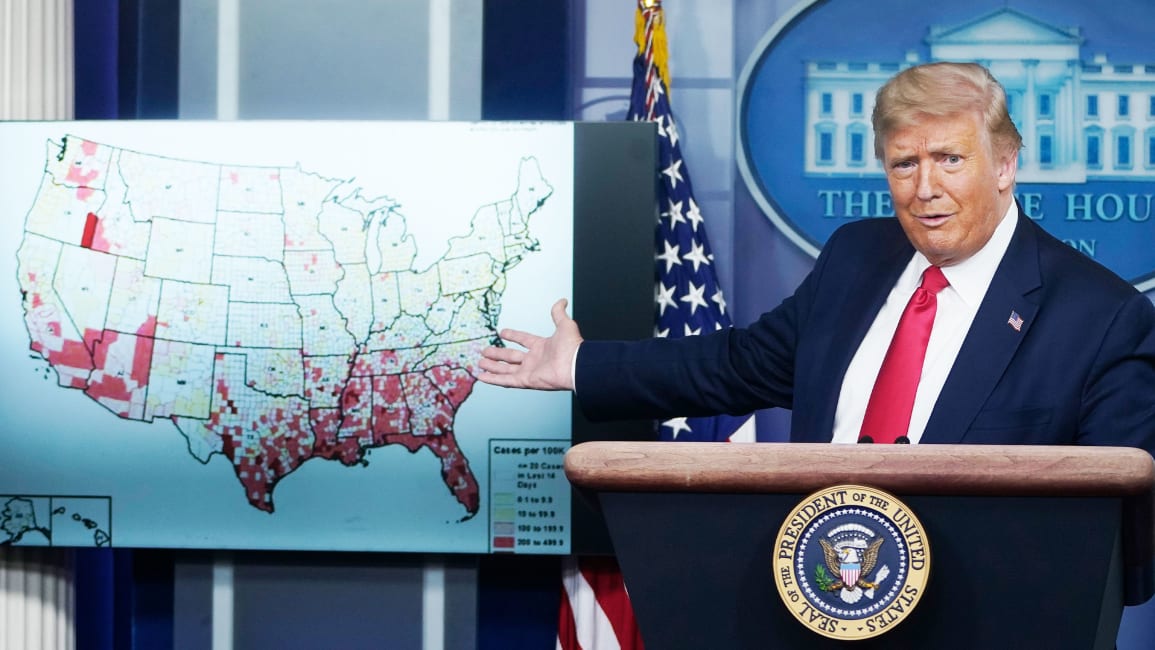America’s In Much Better Shape (at Home and Abro
Post# of 128803
TAKE A BREATH
We still face existential threats to our democracy, but the U.S. is far stronger than it was before the pandemic.
David Rothkopf
Updated Aug. 30, 2023 2:52PM EDT Published Aug. 30, 2023 4:22AM EDT
https://www.thedailybeast.com/americas-in-muc...e?ref=home

Photo Illustration by Kelly Caminero / The Daily Beast / Getty
What if America is actually going to be alright, after all?
What if, in fact, it turns out we are living in a moment of not just American resilience, but of resurgence? What if, as has happened so often in American history, when confronted by great challenges we are emerging stronger, confounding expectations?
Think where we were on Jan. 6, 2021. Our democracy was on the ropes. Our president had betrayed the country. For the first time in our history, we failed to have a peaceful transfer of power between our elected leaders. The movement led by Donald Trump fed on the worst flaws in our national character—the racism, sexism, hyper-nationalism, and greed that had so often tormented us in the preceding two and a half centuries.
11 Wild Things That Could Happen in the 2024 Election
KNOW THE UNKNOWNS
David Rothkopf
https://www.thedailybeast.com/11-wild-things-...4-election

The nation was wracked by a pandemic. The toll the disease was taking was compounded by science deniers who pressured the vulnerable into rejecting the advice and benefits offered by medicine. Our economy was shaken, as was that of the world. U.S. GDP had fallen by 3.5 percent the previous year, more than a 5-point decline from the year before.
Our rivals in the world were rising. By some measures, China’s economy had already eclipsed ours in size. But regardless of metrics, the momentum was with them. The U.S. was wounded, faltering, bleeding out.
It would be foolish to suggest that we have solved all the problems we faced nearly 1,000 days ago at the moment of the insurrection. Our politics are still broken. Inequality continues to soar. A substantial percentage of our electorate still feeds on hate and contempt for our institutions, seemingly ready to support a presidential candidate currently facing 91 felony counts in four separate court cases.
If the election next year goes to Trump, if our justice system fails to hold him accountable, if he can live up to his promises to gut the checks and balances in our system, to fire our dedicated civil servants, to make the country effectively pledge its loyalty not to our ideals or our Constitution to but to just one man, then the American experiment will have met a terrible end.
But, as we look back on the past three years, as we assess where we are against where we were and where we might have been, there is cause for hope.
While we cannot be complacent about the threats we face, given their gravity we should not deny ourselves the lift we might gain from assessing just where things have gone right. We should find it motivating to acknowledge seeing what is best about our country triumph over what is most malign, and seeing the natural strengths of the American people—and of our system—withstand the grave threats they have faced and are facing.
After all, from the depths of the COVID pandemic, and despite the gross mismanagement of the previous U.S. administration, America has recovered more rapidly than the other advanced economies of the G7.
This recovery has included job growth that has broken records and the sound management of inflation—which was associated chiefly with the pandemic-caused supply chain squeezes and corporate profiteering linked to those supply chain problems. The recovery has been marked by low unemployment, low energy costs, and an active program of investing in the U.S. economy.
Despite the fact that U.S. politics is so polarized and toxic, the past three years have seen more major public initiatives investing in American growth than at any time in the past 60 years.
There may have been mini-eras that are generally viewed more positively in hindsight during that period— but the Bipartisan Infrastructure Package was the biggest such piece of legislation since the Eisenhower years. The Inflation Reduction Act was the biggest investment in combating climate change and in green growth in U.S. history. The CHIPs and Science Act will help make America less dependent on foreign sources for vital technologies while ensuring we remain the world’s leader in critical technologies. The American Rescue Plan lifted millions out of poverty and helped millions more rebound from the consequences of the pandemic’s devastation.

U.S. President Donald Trump gestures to a map while speaking during a news conference about his administration's response to the ongoing coronavirus pandemic at the White House on July 23, 2020 in Washington, D.C.
At the same time, this administration looks more like the American people—all of them—than any in our history. And it has brought more diversity to our courts than any of its predecessors.
President Biden and his administration and their allies on Capitol Hill deserve recognition for these accomplishments. What they have achieved has truly been remarkable. But the credit is hardly theirs alone.
American voters soundly rejected the abuses of Trump and the extremists he promoted in the 2020 and 2022 election cycles. Following the Supreme Court’s Dobbs decision, which ended 50 years of women’s rights to bodily autonomy, even “red” states like Kansas and Ohio and “purple” states like Wisconsin and Michigan rejected extremist measures and courts.
And judges appointed by both Republicans and Democrats have frequently ruled against the most extreme measures. Not always. But often enough to believe that the system is still capable of working, and to send a message to the far right that Americans will fight for their fundamental rights time and time again.
The Right: ‘Why Do These Racists Keep Getting Hired by Us?’
HEY, AT LEAST THEY’RE NOT WOKE
https://www.thedailybeast.com/the-right-needs...ired-by-us
Trump may have been able to pack the Supreme Court (thanks to the rule bending of Mitch McConnell and Senate Republicans) and to avoid conviction in two impeachment trials thanks to the same group, but he now faces seven different trials, including four major criminal prosecutions. And so far, with few exceptions, we have every reason to believe that those cases will be conducted according to the letter and spirit of the law and untainted by politics—despite the worst efforts of the former president and his supporters.
Indeed, we should even garner encouragement from the fact that the Biden administration has honored tradition and oath by remaining hands-off in the case involving the president’s own son. His attorney general even appointed a special counsel, appearing to objective observers to be bending over backwards to be fair.
Yes, there are dark forces at work in our system. Yes, we must continue to call them out, resist, and defeat them.

Pro-Trump protesters gather in front of the U.S. Capitol Building on January 6, 2021 in Washington, D.C.
But three years ago, if you had said that the U.S. would be stronger than ever in the eyes of the world, that our NATO alliance would be larger and more vital, that we would be building vast new alliances across the Pacific, few would have believed it.
Had you said we would go from Trump’s subordinating U.S. interests to those of Russia, to standing up to Putin and helping Ukraine score victory after unimaginable victory over their much bigger neighbor, you would have rejected the idea as too improbable an about-face.
Indeed, taking an even longer-term perspective, I recall 30 years ago when I was working in the Clinton administration and we were starting to focus on the rise of what we called Big Emerging Markets—what the world ultimately came to call BRICS—most felt that the emerging powers would inevitably rise to preeminence and we would falter.
But now, one by one the BRICS have faltered. Russia has succumbed to the dreadful costs of Putin’s hubris. Brazil has suffered with weak leaders or worse. India has drifted away from democracy and toward ethno-nationalism. Sadly, South Africa—like most other economies in Africa—failed to find its footing. Even China, by far the most potent of them, may be facing long-term economic reversals.
Yet, here we are, stronger than ever.
And next year, if Trump and the MAGA movement are defeated at the November elections (as independents and Democrats unite as polls suggest they might to reject the right’s brazen criminality and hate-fueled policies), and Trump is held to account in the courts, America will have completed a remarkable comeback, truly one for the ages.
We will have defeated COVID. We will have risen to face down grave international challenges. We will have begun the process of fixing much of what is broken in our own system. We will have invested in a more independent, innovative, technologically advanced, climate-friendly, job-producing economy. And, as a consequence, we will once again be in a position to lead for many years to come.
Of course, those outcomes are not written in stone. But frankly, as we look back on the past several years, we should take heart in the fact that they are in reach. Just as we did when we faced the trauma of the revolution that gave birth to this country, or the growing pains of a divided nation, or the Civil War, or two World Wars, or rampant racism, or robber barons from one age to another—though we may struggle, we have a uniquely American way of gaining strength from our travails.
We have much work to do. But we also have something we had no reason to expect to have right now. Once again, we have hope.
 (1)
(1) (0)
(0)